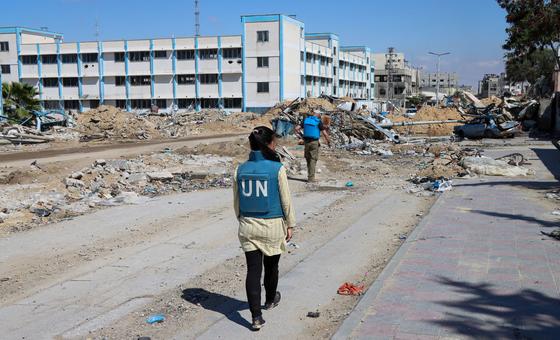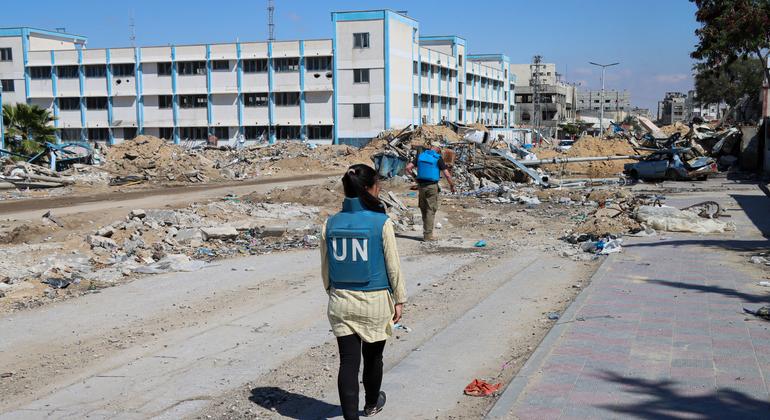
Jamie McGoldrick, the UN Humanitarian Coordinator overseeing crisis relief in Gaza, pushed back at Israeli claims that more than 1,000 trucks had entered Gaza in the last few days but only around 800 had been collected on the Palestinian side.
The veteran aid official also maintained that the deconfliction system in which humanitarians shared their coordinates with the warring sides was “consistently inaccurate”, but that he had raised these and other operational concerns with the Israeli military at their first meeting earlier this week.
“It’s very easy for Israel to say we’ve sent you 1,000 trucks so please deliver them inside Gaza,” he said, in a renewed appeal to the Israeli authorities to recognise that their responsibility as the occupying power “only ends when…aid reaches the civilians in Gaza”.
Describing long delays at checkpoints and a “security vacuum” inside the enclave that continues to hamper the delivery of aid where it is most needed, the UN official noted that the UN Children’s Fund (UNICEF) team whose vehicle was hit by live ammunition on Thursday had been held “for hours” at a checkpoint on Salah Al Deen road.
So far this month, some 60 hours have been wasted in this way, Mr. McGoldrick insisted. “And then what happens sometimes, it’s too late in the day – because you can only travel in daylight hours – to go north and therefore sometimes the mission is cancelled. And then we get blamed by Israel for cancelling the convoy, cancelling the mission to the north.”
Only three roads are open to humanitarian relief in Gaza today: the middle route via Salah Al Deen road, the coastal Al Rashid road – and the military road on the east side of Gaza. “At no point in time in the last month and more have we had three or even two of those roads working at the same time simultaneously,” the UN aid coordinator maintained, adding that all of the highways were in “very poor condition”.
The consequences of “very limited” aid missions into the north of the enclave were already clear, judging by how underweight babies are when they are born, Mr. McGoldrick continued.
Speaking from Jerusalem, the veteran aid worker described visiting Kamal Adwan hospital two weeks ago, where “every single patient” in the children’s ward faced life-threatening hunger.
“The last child I saw was in an incubator who was a two-day-old boy, but who wasn’t prematurely born – he was born in nine months – but he was 1.2 kilos. There are going to be long-term consequences, which will be felt in the development possibility of that child.”



